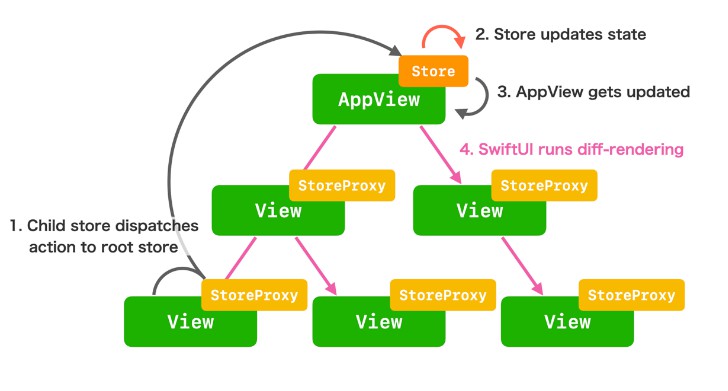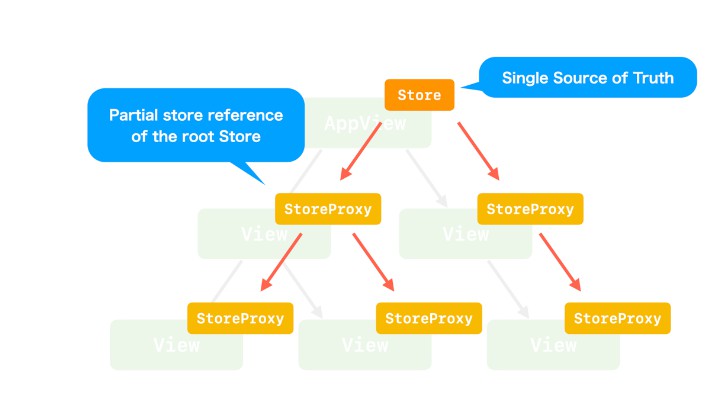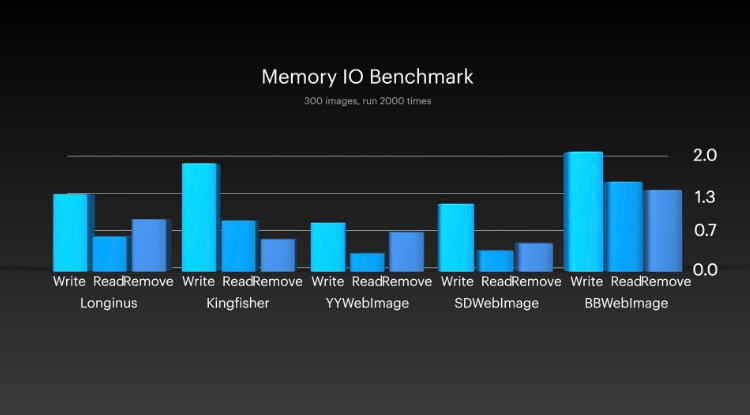?
Actomaton

??
Actor +
?
Automaton =
?
Actomaton
Actomaton is Swift async/await & Actor-powered effectful state-management framework inspired by Elm and swift-composable-architecture.
This repository consists of 2 frameworks:
Actomaton: Actor-based effect-handling state-machine at its core. Linux ready.ActomatonStore: SwiftUI & Combine support
These frameworks depend on swift-case-paths as Functional Prism library, which is a powerful tool to construct an App-level Mega-Reducer from each screen’s Reducers.
This framework is a successor of the following projects:
Demo App
1. Actomaton (Core)
Example 1-1. Simple Counter
<div class="highlight highlight-source-swift position-relative" data-snippet-clipboard-copy-content="enum State {
var count: Int = 0
}
enum Action {
case increment
case decrement
}
typealias Enviornment = Void
let reducer: Reducer
reducer = Reducer { action, state, environment in
switch action {
case .increment:
state.count += 1
return Effect.empty
case .decrement:
state.count -= 1
return Effect.empty
}
}
let actomaton = Actomaton(
state: State(),
reducer: reducer
)
@main
enum Main {
static func main() async {
assertEqual(await actomaton.state.count, 0)
await actomaton.send(.increment)
assertEqual(await actomaton.state.count, 1)
await actomaton.send(.increment)
assertEqual(await actomaton.state.count, 2)
await actomaton.send(.decrement)
assertEqual(await actomaton.state.count, 1)
await actomaton.send(.decrement)
assertEqual(await actomaton.state.count, 0)
}
}
“>
enum State {
var count: Int = 0
}
enum Action {
case increment
case decrement
}
typealias Enviornment = Void
let reducer: Reducer<Action, State, Environment>
reducer = Reducer { action, state, environment in
switch action {
case .increment:
state.count += 1
return Effect.empty
case .decrement:
state.count -= 1
return Effect.empty
}
}
let actomaton = Actomaton<Action, State>(
state: State(),
reducer: reducer
)
@main
enum Main {
static func main() async {
assertEqual(await actomaton.state.count, 0)
await actomaton.send(.increment)
assertEqual(await actomaton.state.count, 1)
await actomaton.send(.increment)
assertEqual(await actomaton.state.count, 2)
await actomaton.send(.decrement)
assertEqual(await actomaton.state.count, 1)
await actomaton.send(.decrement)
assertEqual(await actomaton.state.count, 0)
}
}
If you want to do some logging (side-effect), add Effect in Reducer as follows:
reducer = Reducer { action, state, environment in
switch action {
case .increment:
state.count += 1
return Effect.fireAndForget {
print("increment")
}
case .decrement:
state.count -= 1
return Effect.fireAndForget {
print("decrement and sleep...")
await Task.sleep(...) // NOTE: We can use `await`!
print("I'm awake!")
}
}
}
NOTE: There are 5 ways of creating Effect in Actomaton:
- No side-effects, but next action only
- Single
async without next action
Effect.fireAndForget(id:run:)
- Single
async with next action
- Multiple
asyncs (i.e. AsyncSequence) with next actions
Effect.init(id:sequence:)
- Manual cancellation
Effect.cancel(id:) / .cancel(ids:)
Example 1-2. Login-Logout (and ForceLogout)

Effect
let logoutEffect: Effect
}
let environment = Environment(
loginEffect: { userId in
Effect(id: LoginFlowEffectID()) {
let loginRequest = …
let data = try? await URLSession.shared.data(for: loginRequest)
if Task.isCancelled { return nil }
…
return Action.loginOK // next action
}
},
logoutEffect: {
Effect(id: LoginFlowEffectID()) {
let logoutRequest = …
let data = try? await URLSession.shared.data(for: logoutRequest)
if Task.isCancelled { return nil }
…
return Action.logoutOK // next action
}
}
)
let reducer = Reducer { action, state, environment in
switch (action, state) {
case (.login, .loggedOut):
state = .loggingIn
return environment.login(state.userId)
case (.loginOK, .loggingIn):
state = .loggedIn
return .empty
case (.logout, .loggedIn),
(.forceLogout, .loggingIn),
(.forceLogout, .loggedIn):
state = .loggingOut
return environment.logout()
case (.logoutOK, .loggingOut):
state = .loggedOut
return .empty
default:
return Effect.fireAndForget {
print("State transition failed…")
}
}
}
let actomaton = Actomaton(
state: .loggedOut,
reducer: reducer,
environment: environment
)
@main
enum Main {
static func test_login_logout() async {
var t: Task?
assertEqual(await actomaton.state, .loggedOut)
t = await actomaton.send(.login)
assertEqual(await actomaton.state, .loggingIn)
await t?.value // wait for previous effect
assertEqual(await actomaton.state, .loggedIn)
t = await actomaton.send(.logout)
assertEqual(await actomaton.state, .loggingOut)
await t?.value // wait for previous effect
assertEqual(await actomaton.state, .loggedOut)
XCTAssertFalse(isLoginCancelled)
}
static func test_login_forceLogout() async throws {
var t: Task?
assertEqual(await actomaton.state, .loggedOut)
await actomaton.send(.login)
assertEqual(await actomaton.state, .loggingIn)
// Wait for a while and interrupt by `forceLogout`.
// Login’s effect will be automatically cancelled because of same `EffectID.
await Task.sleep(/* 1 ms */)
t = await actomaton.send(.forceLogout)
assertEqual(await actomaton.state, .loggingOut)
await t?.value // wait for previous effect
assertEqual(await actomaton.state, .loggedOut)
}
}
“>
enum State {
case loggedOut, loggingIn, loggedIn, loggingOut
}
enum Action {
case login, loginOK, logout, logoutOK
case forceLogout
}
// NOTE:
// Use same `EffectID` so that if previous effect is still running,
// next effect with same `EffectID` will automatically cancel the previous one.
//
// Note that `EffectID` is also useful for manual cancellation via `Effect.cancel`.
struct LoginFlowEffectID: EffectIDProtocol {}
struct Environment {
let loginEffect: (userId: String) -> Effect<Action>
let logoutEffect: Effect<Action>
}
let environment = Environment(
loginEffect: { userId in
Effect(id: LoginFlowEffectID()) {
let loginRequest = ...
let data = try? await URLSession.shared.data(for: loginRequest)
if Task.isCancelled { return nil }
...
return Action.loginOK // next action
}
},
logoutEffect: {
Effect(id: LoginFlowEffectID()) {
let logoutRequest = ...
let data = try? await URLSession.shared.data(for: logoutRequest)
if Task.isCancelled { return nil }
...
return Action.logoutOK // next action
}
}
)
let reducer = Reducer { action, state, environment in
switch (action, state) {
case (.login, .loggedOut):
state = .loggingIn
return environment.login(state.userId)
case (.loginOK, .loggingIn):
state = .loggedIn
return .empty
case (.logout, .loggedIn),
(.forceLogout, .loggingIn),
(.forceLogout, .loggedIn):
state = .loggingOut
return environment.logout()
case (.logoutOK, .loggingOut):
state = .loggedOut
return .empty
default:
return Effect.fireAndForget {
print("State transition failed...")
}
}
}
let actomaton = Actomaton<Action, State>(
state: .loggedOut,
reducer: reducer,
environment: environment
)
@main
enum Main {
static func test_login_logout() async {
var t: Task<(), Never>?
assertEqual(await actomaton.state, .loggedOut)
t = await actomaton.send(.login)
assertEqual(await actomaton.state, .loggingIn)
await t?.value // wait for previous effect
assertEqual(await actomaton.state, .loggedIn)
t = await actomaton.send(.logout)
assertEqual(await actomaton.state, .loggingOut)
await t?.value // wait for previous effect
assertEqual(await actomaton.state, .loggedOut)
XCTAssertFalse(isLoginCancelled)
}
static func test_login_forceLogout() async throws {
var t: Task<(), Never>?
assertEqual(await actomaton.state, .loggedOut)
await actomaton.send(.login)
assertEqual(await actomaton.state, .loggingIn)
// Wait for a while and interrupt by `forceLogout`.
// Login's effect will be automatically cancelled because of same `EffectID.
await Task.sleep(/* 1 ms */)
t = await actomaton.send(.forceLogout)
assertEqual(await actomaton.state, .loggingOut)
await t?.value // wait for previous effect
assertEqual(await actomaton.state, .loggedOut)
}
}
Here we see the notions of EffectID, Environment, and let task: Task<(), Never> = actomaton.send(...)
EffectID is for both manual & automatic cancellation of previous running effects. In this example, forceLogout will cancel login‘s networking effect.Environment is useful for injecting effects to be called inside Reducer so that they become replaceable. Environment is known as Dependency Injection (using Reader monad).- (Optional)
Task<(), Never> returned from actomaton.send(action) is another fancy way of dealing with “all the effects triggered by action“. We can call await task.value to wait for all of them to be completed, or task.cancel() to cancel all. Note that Actomaton already manages such tasks for us internally, so we normally don’t need to handle them by ourselves (use this as a last resort!).
Example 1-3. Timer (using AsyncSequence)
<div class="highlight highlight-source-swift position-relative" data-snippet-clipboard-copy-content="typealias State = Int
enum Action {
case start, tick, stop
}
struct TimerID: EffectIDProtocol {}
struct Environment {
let timerEffect: Effect
}
let environment = Environment(
timerEffect: { userId in
Effect(id: TimerID(), sequence: AsyncStream { continuation in
let task = Task {
while true {
await Task.sleep(/* 1 sec */)
continuation.yield(())
}
}
continuation.onTermination = { @Sendable _ in
task.cancel()
}
}
}
)
let reducer = Reducer { action, state, environment in
switch action {
case .start:
return environment.timerEffect
case .tick:
state += 1
return .empty
case .stop:
return Effect.cancel(id: TimerID())
}
}
let actomaton = Actomaton(
state: 0,
reducer: reducer,
environment: environment
)
@main
enum Main {
static func test_timer() async {
assertEqual(await actomaton.state, 0)
await actomaton.send(.start)
assertEqual(await actomaton.state, 0)
await Task.sleep(/* 1 sec */)
assertEqual(await actomaton.state, 1)
await Task.sleep(/* 1 sec */)
assertEqual(await actomaton.state, 2)
await Task.sleep(/* 1 sec */)
assertEqual(await actomaton.state, 3)
await actomaton.send(.stop)
await Task.sleep(/* long enough */)
assertEqual(await actomaton.state, 3,
"Should not increment because timer is stopped.")
}
}
“>
typealias State = Int
enum Action {
case start, tick, stop
}
struct TimerID: EffectIDProtocol {}
struct Environment {
let timerEffect: Effect<Action>
}
let environment = Environment(
timerEffect: { userId in
Effect(id: TimerID(), sequence: AsyncStream<()> { continuation in
let task = Task {
while true {
await Task.sleep(/* 1 sec */)
continuation.yield(())
}
}
continuation.onTermination = { @Sendable _ in
task.cancel()
}
}
}
)
let reducer = Reducer { action, state, environment in
switch action {
case .start:
return environment.timerEffect
case .tick:
state += 1
return .empty
case .stop:
return Effect.cancel(id: TimerID())
}
}
let actomaton = Actomaton<Action, State>(
state: 0,
reducer: reducer,
environment: environment
)
@main
enum Main {
static func test_timer() async {
assertEqual(await actomaton.state, 0)
await actomaton.send(.start)
assertEqual(await actomaton.state, 0)
await Task.sleep(/* 1 sec */)
assertEqual(await actomaton.state, 1)
await Task.sleep(/* 1 sec */)
assertEqual(await actomaton.state, 2)
await Task.sleep(/* 1 sec */)
assertEqual(await actomaton.state, 3)
await actomaton.send(.stop)
await Task.sleep(/* long enough */)
assertEqual(await actomaton.state, 3,
"Should not increment because timer is stopped.")
}
}
<div class="highlight highlight-source-swift position-relative" data-snippet-clipboard-copy-content="enum Root {} // just a namespace
// NOTE: `contramap` is also called `pullback` in swift-composable-architecture.
static var reducer: Reducer {
Reducer.combine(
Counter.reducer
.contramap(action: /Action.counter)
.contramap(state: /State.Current.counter)
.contramap(state: \State.current)
.contramap(environment: { _ in () }),







